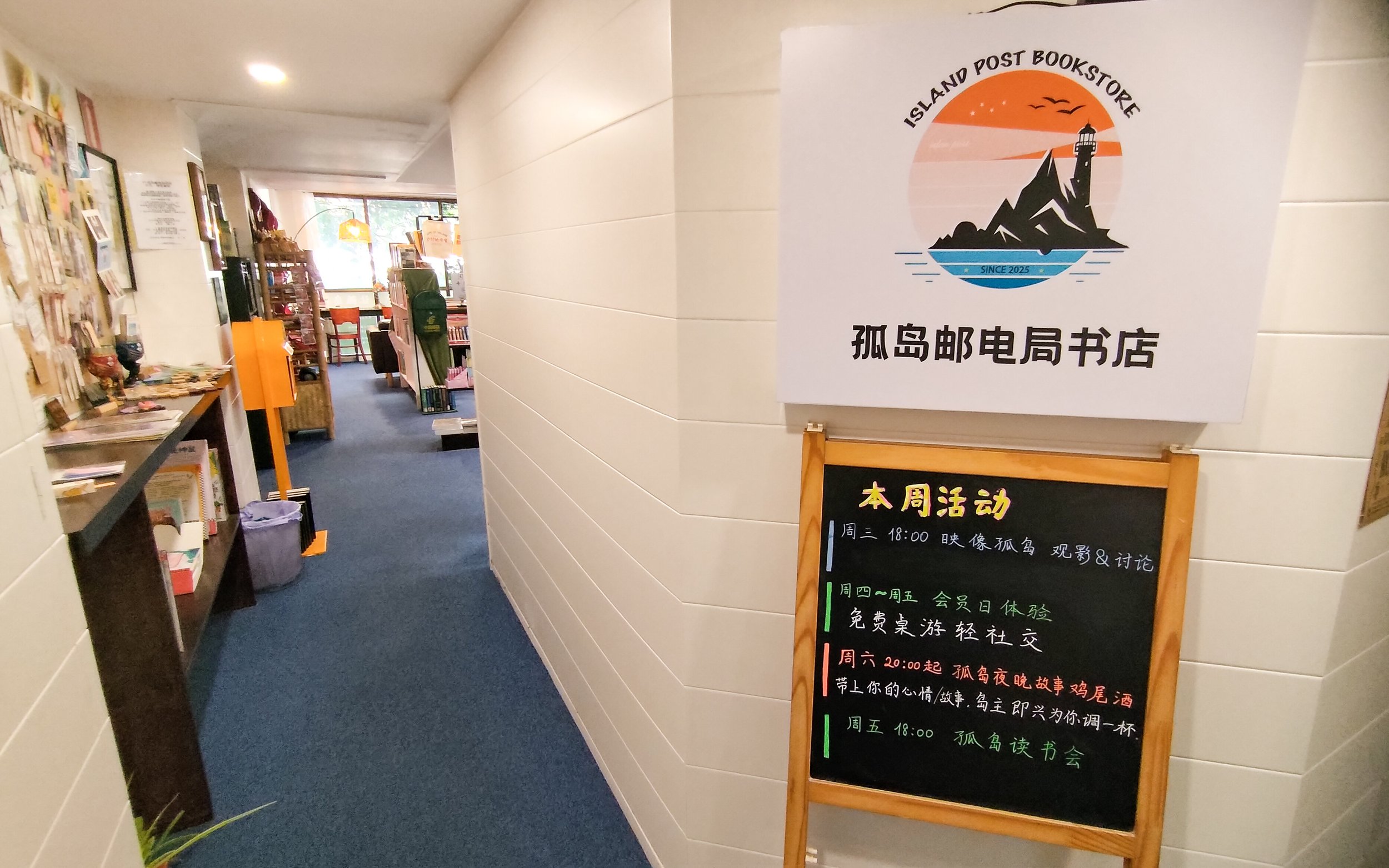Independent Chinese bookstores start a new chapter abroad
From Auckland to Rotterdam, the outlets are emerging worldwide as community hubs for cultural exchange.
A pop-up Nowhere bookstore has opened on Auckland's Karangahape Road.
Chinese book lovers in New Zealand have for several years lacked a dedicated space for titles in their own language.
A new independent bookstore is stepping into the void.
Opening Thursday on Auckland’s Karangahape Road through 14 December, Nowhere Bookstore offers a wide range of traditional Chinese titles alongside a smaller selection of independent publications, simplified Chinese books and English works.
The bookstore began in Taipei in 2022, founded by writer and editor Jie Ping Zhang as a cultural hub for Hong Kong migrants looking for familiar literature and a wider community.
“Nowhere was never just a store,” Zhang says.
“It was about rebuilding a sense of home for diasporic communities,” she says.
“Through these spaces, we can present a richer and freer version of Chinese culture, one that extends beyond narrow borders.”
In recent years, Nowhere has gone global, expanding its reach from Chiang Mai, Thailand, in 2023 to The Hague in 2024, and, most recently, opening new branches in Tokyo and Auckland.
Nowhere bookstore in Tokyo, Japan.
Zhang says the bookstore’s growth is not about building a chain but nurturing a network that responds to local communities.
“Each branch grows from its own community, shaped by the people who host it,” she says.
Nowhere arrives in Auckland at a time when there is a growing demand for Chinese-language books and cross-cultural understanding.
“Through books, we hope Chinese-speaking communities can look beyond local issues while helping locals gain a deeper understanding of the Chinese-language world,” says Crystal Fang, a member of the team behind the pop-up store.
The 28-year-old has also observed a growing trend of independent Chinese bookstores opening overseas in recent years.
“These stores are different from traditional bookstores — they cater to the next generation’s need for a kind of ‘stratosphere’ in which they can connect with one another,” Fang says.
Ferry Books in Rotterdam, the Netherlands.
In Rotterdam, Netherlands, Ferry Books started as an online project and grew into a physical store in 2024.
Founder Yishan Du says that journey mirrors the experience of many independent bookstores.
“We started online and built a presence on social media, but it was when we set up stalls and met readers in person, beyond just their names on delivery slips, that we were encouraged by the face-to-face interaction and decided to open a real store,” Du recalls.
Du sees Ferry Books as more than a place to buy books — it’s a space for social exchange and hosting events such as movie screenings, painting workshops and board game gatherings.
“It’s actually very difficult for a bookstore to make a profit from book sales alone, as people now have many online options,” she says.
“So, we rely on other business models to make up the shortfall and keep the bookstore running.”
Island Post in Barcelona, Spain.
Jing Zhang Tang, founder of Island Post in Barcelona, Spain, shares a similar experience.
After four years of selling books through social media, he opened a physical store in April.
The store now runs six days a week, offering a membership system that lets readers borrow books, enjoy discounts and free drinks, and join daily events listed on its social media calendar.
He says that income barely covers the rent in the off-season when international students are away.
On top of that, the high, non-refundable costs of shipping and taxes from China add another layer of pressure.
“Bookstores in China can rely on discounts and brand-backed arrangements, but that’s not the case overseas,” Tang says.
“I can’t predict how much will sell,” he says. “I have to place the orders and take on all the risk myself — that’s the real pain point.”
Yet for Tang, the store represents more than a commercial venture.
“A bookstore serves the needs of the mother tongue, and many new immigrants come here seeking guidance as they navigate different parts of life,” he says.
“We talk, share information and build connections.” he says. “That’s what a bookstore should provide — something the internet can’t replace.”
Island Post founder Jing Zhang Tang sees the bookstore as more than a commercial venture.
Du shares a similar view.
While digital reading has narrowed the market, she believes physical bookstores are far from obsolete—they have become vital gateways for cross-cultural exchange.
In fact, it was only after opening her store that she discovered the Netherlands’ long-standing tradition of sinology, and now her shop attracts a diverse crowd curious about Chinese culture.
She also works to fill a clear gap in the market.
“Even the works of well-known Chinese authors are largely absent overseas,” Du says.
“I’m importing their English translations to give local readers access.”
Despite their cultural value, both Du and Tang say opening a bookstore is not a decision to take lightly.
“It requires immense time and energy, yet brings little financial return,” Du says.
“You have to find other ways to sustain it — unless it genuinely makes you happy.”
This reality brings uncertainty. Ferry Books’ lease may end next year, potentially forcing it back online or prompting a reinvention of the space.
Yet Du embraces the unknown with optimism.
“Where no one crosses the ferry, a boat swings as it will,” she says, quoting a Chinese poem. “I have little foresight, and whether it seems absurd or not, I don’t know where it will lead.
“This is my most romantic vision for an overseas Chinese bookstore.”




